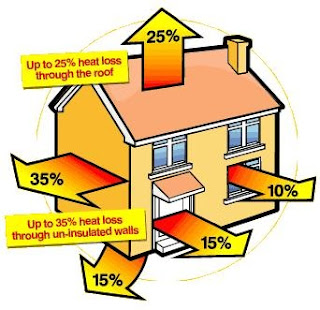
The Post yesterday
reported that,
'Farmland immediately north of Oldbury nuclear power station in South Gloucestershire has been identified as the most likely location for a possible new atomic energy plant. But people who visited a three-day exhibition staged by energy company Eon were told construction of the UK's next generation of nuclear sites – if given the go-ahead – was unlikely to start for another four years...' I've previously posted
my views on nuclear power and so would here focus in on the issue of time. The story above says that construction of new nuclear power stations is unlikely to start for four years. This is a considerable delay - we need to be building our energy security and cutting our carbon emissions now and so there are many technologies more appropriate than nuclear!!
Sustainable Development Commission evidence, not disputed by the Government, shows that building ten new nuclear reactors can cut carbon emissions by a measly 4% and only after 2025! Doubling existing UK nuclear capacity produces an 8% cut by 2035. This is very little and very late in the day!!
The Sustainable Development Commission go on to indicate five major disadvantages of nuclear power, disadvantages they say outweigh the benefits:
1. Long-term waste - no long term solutions are yet available, let alone acceptable to the general public; it is impossible to guarantee safety over the long-term disposal of waste.
2. Cost - the economics of nuclear new-build are highly uncertain. There is little, if any, justification for public subsidy, but if estimated costs escalate, there's a clear risk that the taxpayer will be have to pick up the tab.
3. Inflexibility - nuclear would lock the UK into a centralised distribution system for the next 50 years, at exactly the time when opportunities for microgeneration and local distribution network are stronger than ever.
4. Undermining energy efficiency - a new nuclear programme would give out the wrong signal to consumers and businesses, implying that a major technological fix is all that's required, weakening the urgent action needed on energy efficiency.
5. International security - if the UK brings forward a new nuclear power programme, we cannot deny other countries the same technology (under the terms of the UN Framework Convention on Climate Change). With lower safety standards, they run higher risks of accidents, radiation exposure, proliferation and terrorist attacks.
 Received from Stop Hinkley:
Received from Stop Hinkley: 











